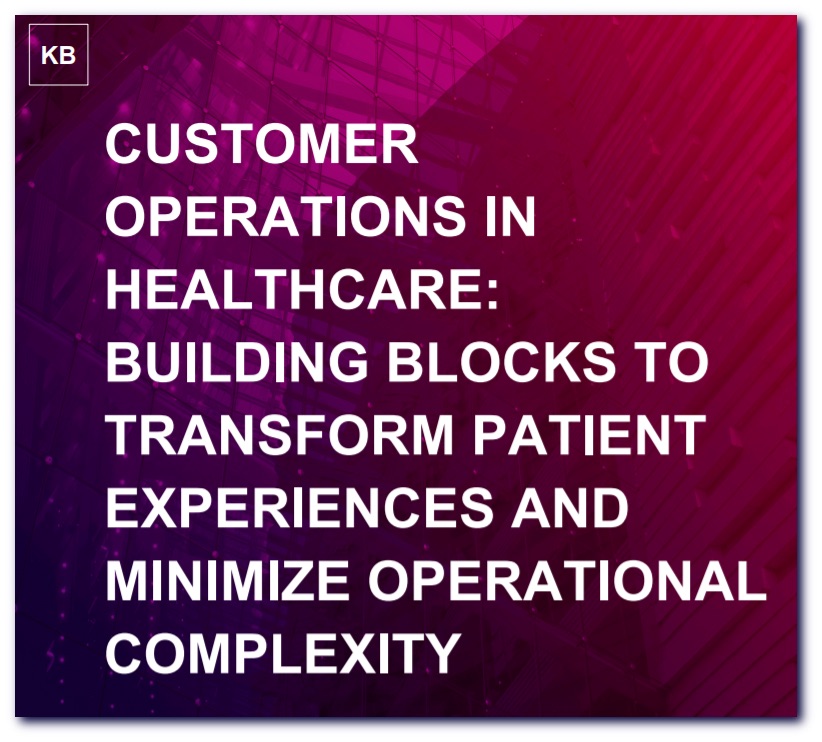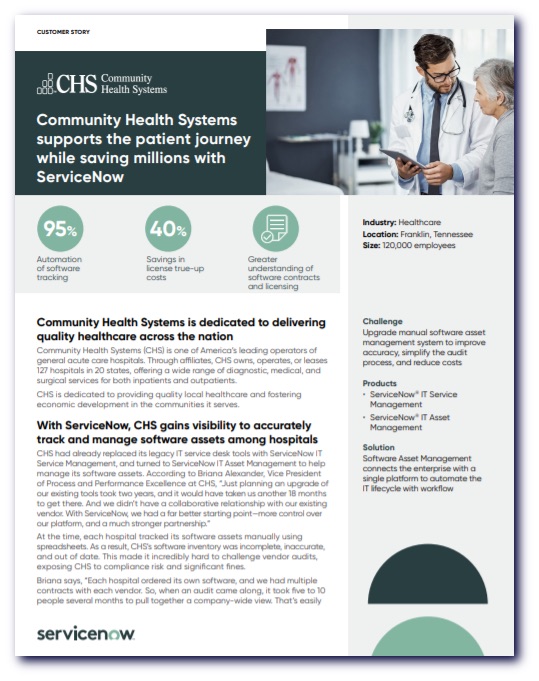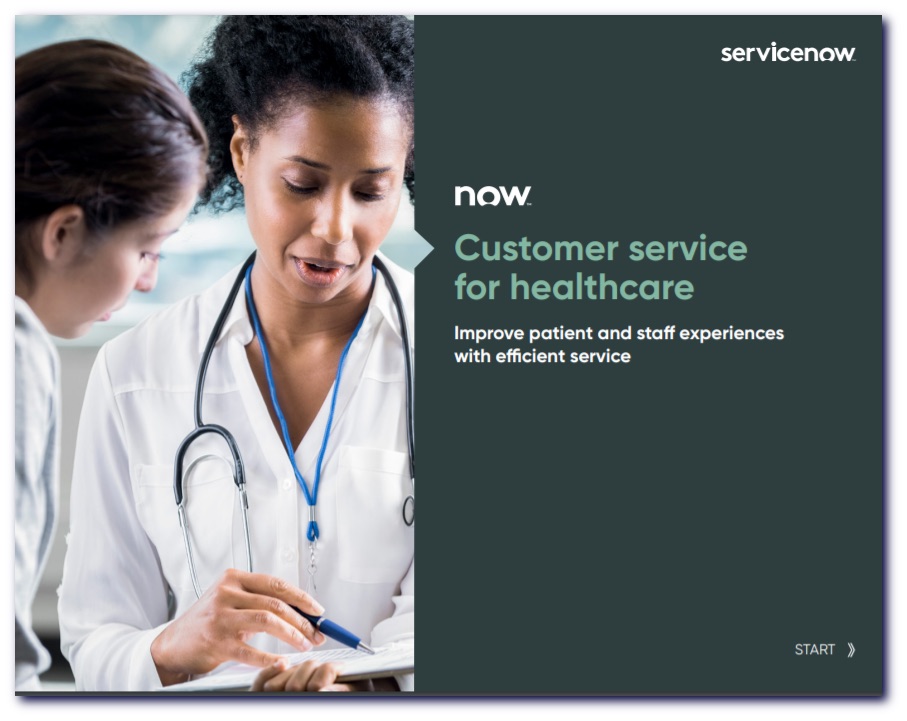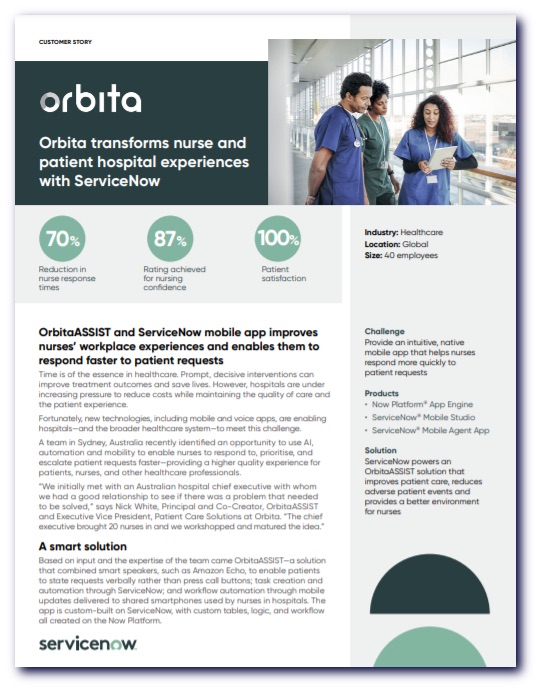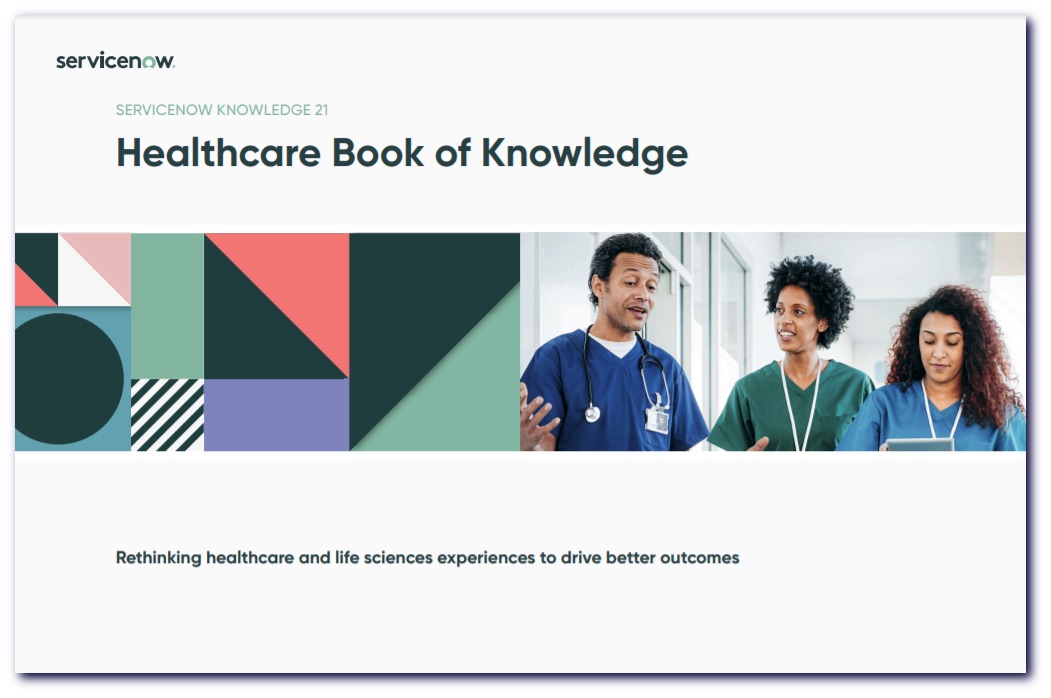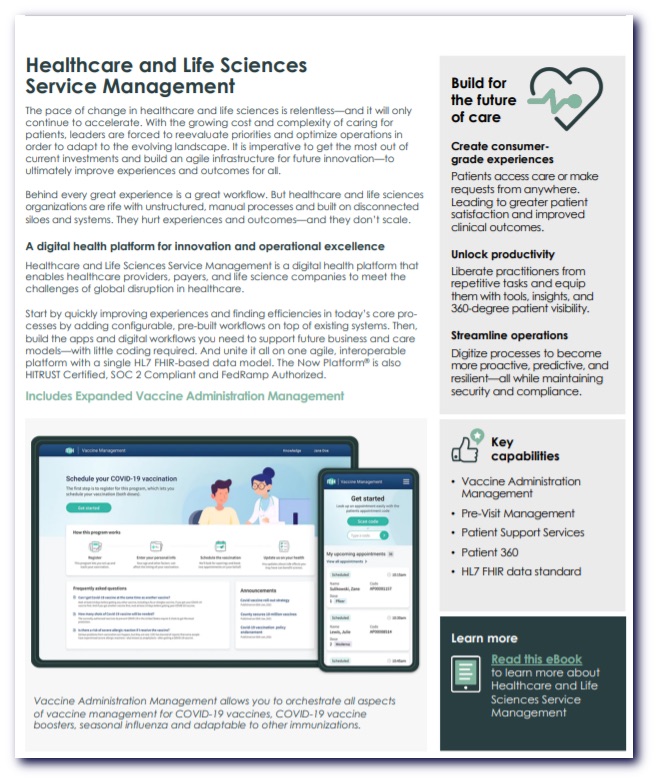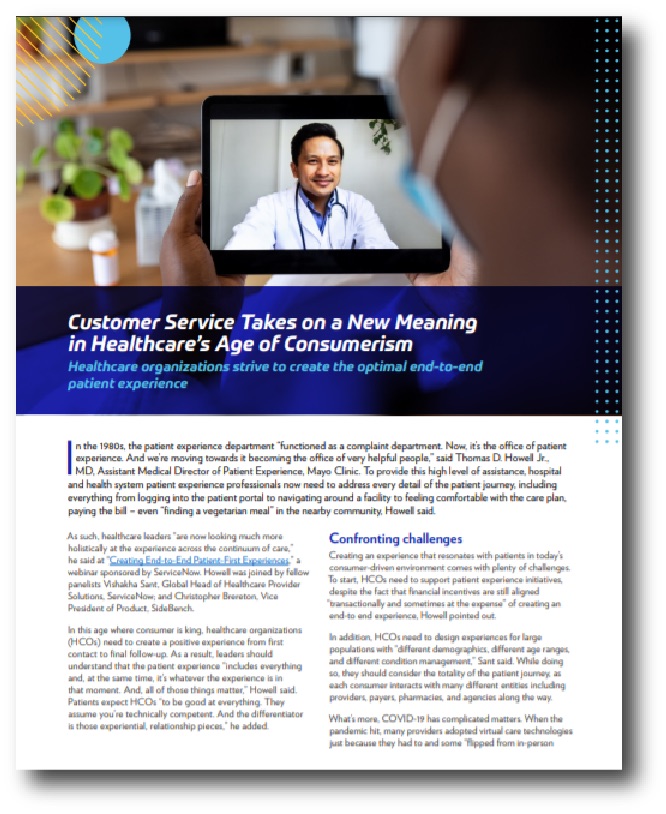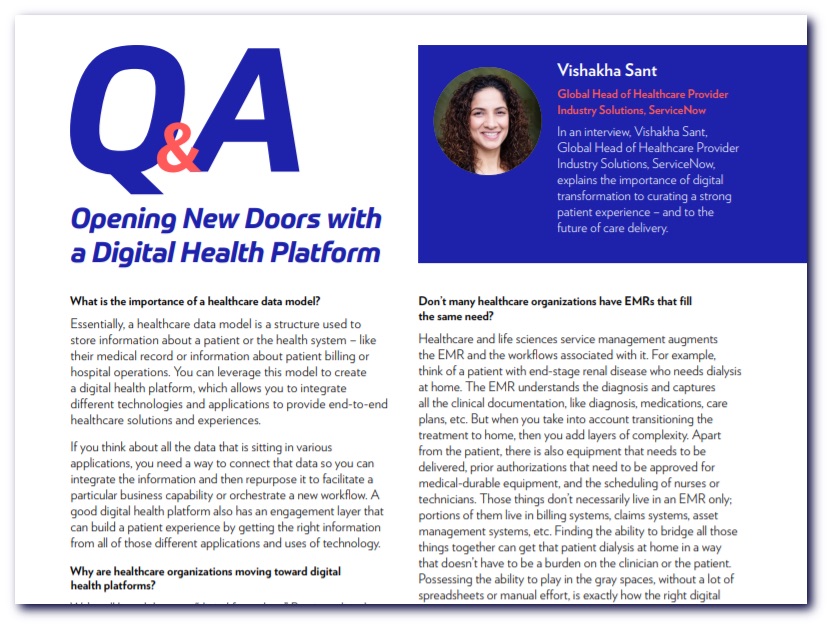
ServiceNow

SPONSORED
Customer operations in healthcare: Building blocks to transform patient experiences and minimize op…
Digital transformation continues to change the ways that healthcare organizations deliver services. Because of this, customer operations, or cooperation between departments to meet and exceed patient needs while boosting staff productivity and staying compliant with internal and external standards, has become more important than ever. According to a recent survey by Aberdeen of healthcare and life science organizations, many organizations are challenged by keeping up with changes in customer needs and poor communication between employees. However, organizations with a customer operations program focused on orchestrating service and back-office activities have reduced costs, driving customer satisfaction and loyalty to achieve best-in-class status.
SPONSORED
Community Health Systems (CHS), located in Franklin, Tennessee, is one of America’s leading operators of general acute-care hospitals. After replacing its legacy IT service desk tools with ServiceNow® IT Service Management, CHS turned to ServiceNow® IT Asset Management to help manage its software assets. At the time, CHS was tracking software assets manually using spreadsheets. This meant the inventory was incomplete, inaccurate and out of date, making it difficult to challenge vendor audits and leaving CHS exposed to compliance risk. ServiceNow helped CHS take more control over its software purchasing path so it could have better conversations with vendors.
SPONSORED
Whether you’re a healthcare provider or payer, patients trust your organization with their health and well-being. So routine activities like scheduling appointments or asking questions about coverage should be as simple and painless for patients as possible. And to achieve that seamless level of care, healthcare organizations need to break down data silos and communicate effectively between systems. ServiceNow solutions can help your organization to automate processes across practices, be more proactive in meeting patient requests and improve customer and staff satisfaction.
SPONSORED
In healthcare, prompt interventions can improve patient outcomes and save lives. New technologies, including mobile and voice apps, are now available to help healthcare providers meet patients’ needs quickly while controlling costs. Orbita, a team in Sydney, Australia, recently used ServiceNow products to develop OrbitaASSIST, a digital solution designed to help hospital nurses respond to patients faster and escalate their requests when needed.
SPONSORED
The COVID-19 pandemic has led to unprecedented shifts in healthcare and life sciences and has accelerated positive and permanent changes. However, organizations from providers to payers to life sciences companies are facing challenges around improving experiences and long-term outcomes for patients, members, clinicians, researchers and staff. Automation with ServiceNow solutions can help organizations simplify workflows, create capacity and provide better experiences without compromising security or compliance.
SPONSORED
As the pace of change in healthcare and life sciences continues to accelerate, leaders must optimize operations and reevaluate priorities. In an ever-evolving healthcare landscape, it’s important to build an agile infrastructure that can improve experiences and allow for future innovation. ServiceNow’s Healthcare and Life Sciences Service Management is an agile, interoperable digital health platform that enables healthcare providers, payers and life science companies to build the apps and digital workflows needed to support business and care models.
SPONSORED
As healthcare has become increasingly consumerized, healthcare organizations (HCOs) need to focus on creating positive experiences along every step of the patient journey. The evolving nature of the COVID-19 pandemic means that providers should try to create optimal patient experiences by offering combinations of in-person and virtual care, being responsive to the needs of different demographics and staying agile to ever-changing circumstances.
SPONSORED
The COVID-19 pandemic forced healthcare providers to pivot to new ways of providing care, most notably telehealth and other technology-enabled care delivery. As the world moves gradually to a post-pandemic future, healthcare organizations need to stay competitive by continuing to build on those capabilities to extend care beyond traditional care settings into homes and workplaces. Tightening workflows and providing more self-service tools will help empower patients to take a more active role in care and improve outcomes.
SPONSORED
As patients and clinicians navigate an increasingly digital healthcare system, there are many opportunities to streamline and personalize their experiences. Vishakha Sant, Global Head of Healthcare Provider Industry Solutions, ServiceNow, explains the importance of healthcare data models and how digital transformation can improve patient satisfaction and engagement.
SPONSORED
Enhancing Your Clinicians’ Experience: Scripps Health and HIMSS Share New Insights into IT-Driven C…
To help ensure success, HIMSS Media and ServiceNow recently conducted a joint survey among IT and clinical stakeholders to better understand how they perceive the impact of their organization’s efforts to leverage technology to modernize clinical processes. This webinar will summarize the findings and recommended actions, and include real-world insights from Scripps Health.
